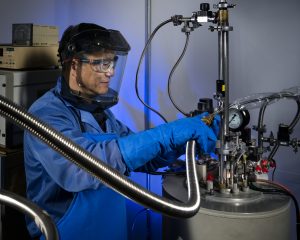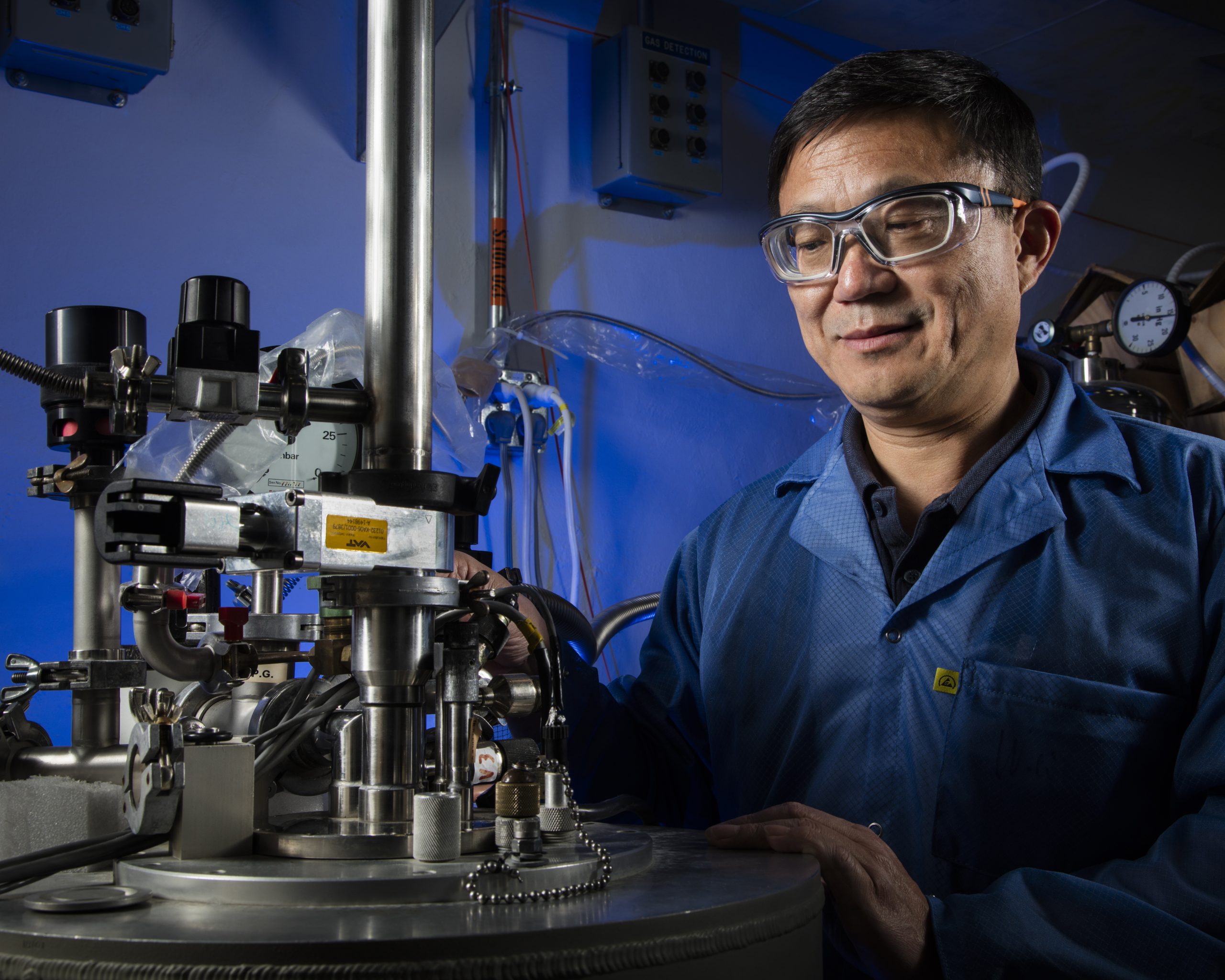LIVERMORE, Calif. — While Wei Pan spends his days studying negatively charged electrons, he’s positively buzzing with excitement after being elected a fellow of the American Physical Society this year, recognizing his remarkable contributions to the field.
“I am grateful to the Division of Condensed Matter Physics of APS for the selection,” Pan said.
The American Physical Society has named him among their prestigious roster of fellows for his pioneering research, which includes the discovery of several unconventional fractional quantum Hall states and innovative experiments exploring the excitonic insulator phase in InAs/GaSb, Majorana particles, topological superconductivity and Leggett modes in Dirac semimetals.
“The fractional quantum Hall effect is a physical phenomenon resulting from the collective motion of electrons in a two-dimensional system, like a waltz among a group of people,” Pan said. “The effect has important implications for fault-tolerant quantum computing. There are many types of FQHE states, kind of like various dancing styles. I was fortunate to discover a few of them.”

(Photo by Randy Wong.) Click on the thumbnail for a high-resolution image.
Pan’s research focuses on quantum phenomena that were theorized but not previously observed. His experiments became possible only when the right combination of materials and resources came together.
“This was not an easy task,” Pan said. “In general, these phenomena are topological, meaning they remain unchanged under continuous deformation. For example, one can deform a coffee mug into a donut because they share the same topology — both have a hole. In physics, topology normally means protection. If a physics phenomenon is topological, it means it is robust and immune to environmental perturbations. Imagine using this topological protection to build a quantum computer. This kind of quantum computer would be much more robust than those currently developed by industry. As a result, a topologically protected quantum computer could be used for general-purpose computing applications, including designing new medicines.”
Pan joined Sandia in 2003 after earning his Ph.D. He worked at the Labs’ Albuquerque location until 2017, when he transferred to the Livermore site, where he continues his research today.
His advice for aspiring researchers is simple: “Follow your own interest. This can propel you longer and deeper in your research journey.”
“I want to thank my family for their strong support of my pursuit of scientific research,” he said. “Without their selfless support, I wouldn’t be able to achieve what I have done. Additionally, I am fortunate to work with many talented individuals at Sandia. They have helped me tremendously, both scientifically and personally.”

